Food / Beirut
Home soil
Lebanon imports much of its food but one Beiruti retailer is trying to create a more sustainable model for feeding its people by reviving traditional production methods. We traverse the country to meet the makers.
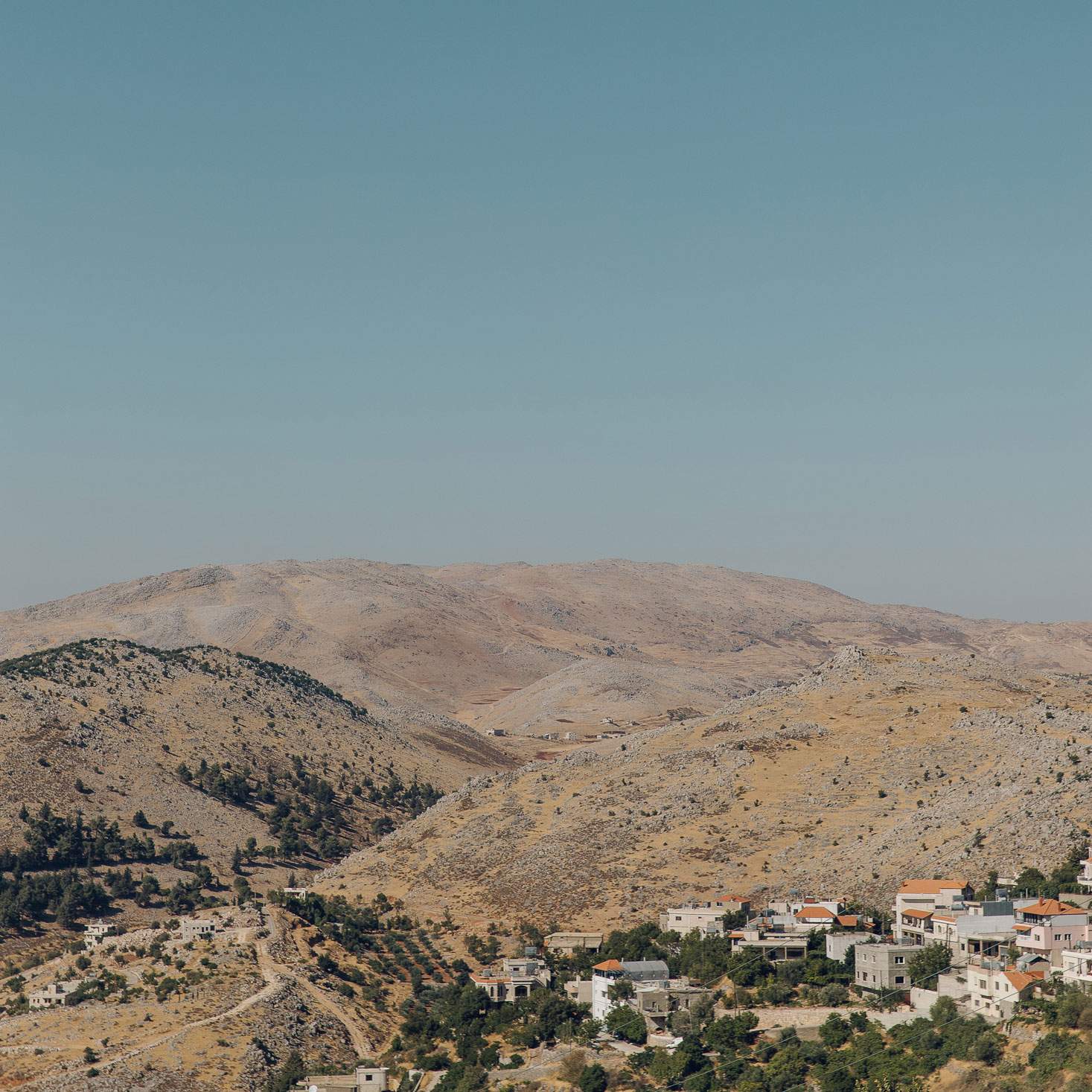
Bekaa valley
Despite its fertility, Lebanon has long relied on imported produce; some 80 per cent of it comes from abroad. Over time this abundance of foreign food has made local ingredients feel less relevant to many and the country’s rich culinary traditions and production practices have fallen into jeopardy. Before the advent of Lebanon’s current financial woes, the Taha family saw this gap in the market as a way of doing good.
The mission became more urgent as the Lebanese pound went into freefall and unemployment rocketed. But, according to Kamel Taha, founder of Beirut food shop Feryal, there is a slither of a silver lining for the country. “Now people are looking local again, both because they can’t afford imported goods and as a way of making an income,” he says. “We’re seeing many more families and producers returning to these traditional methods of production.”
“Traditionally in Lebanon, every family has its own larder and local producers who they consider to be the best at making every item that goes into it,” says Taha. “So we thought, why not bring that to everyone?”
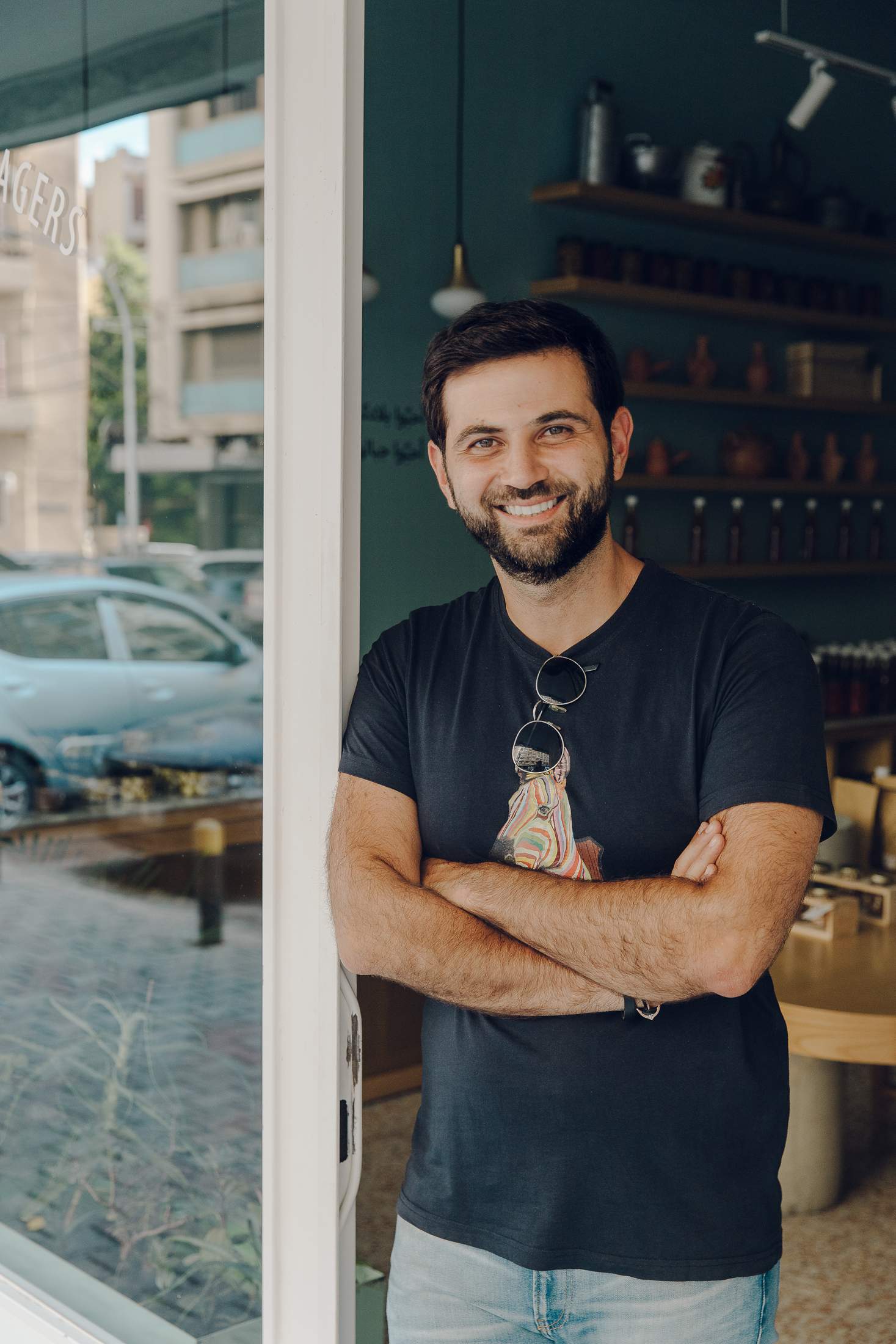
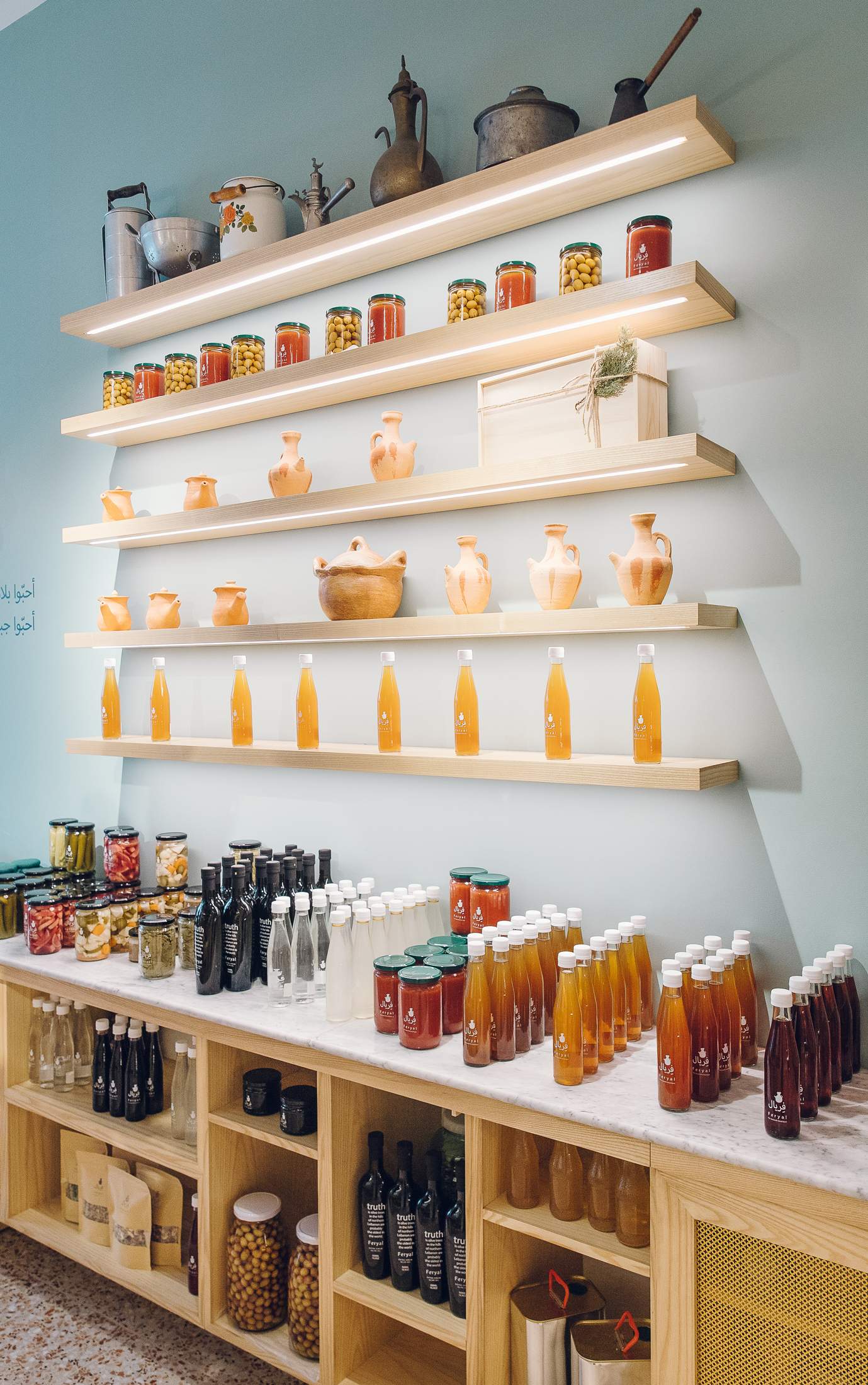
Taha and his parents Faleh and Feryal (who gave the shop her name) spent two years visiting the beaches, mountains and valleys of this small but diverse country to find what they believe to be the finest examples of various traditional ingredients. “We took recommendations too,” says Taha. “The person who provided our olive oil might have said, ‘I only use this particular spice from this particular village, it’s the best’, so we’d go and visit there too.”
The shop is in Beirut’s upmarket Ashrafieh neighbourhood. It is a softly lit, welcoming affair with pine shelving and pistachio-hued walls. Surrounding a thick stone table carved with a relief map of Lebanon are stacks of burgundy-bright sumac from the southern borderlands, scarlet spicy harr paste from the mountains to the north and the apricot blush of orange-blossom water from trees that overlook the waves of the Mediterranean. “Every product really tells the story of a village, a terroir,” says Taha. “It’s tens of hundreds of years of stories, of recipes, of know-how being passed down.”
Charbel Bteish is one such producer – and to say that he knows his apples is an understatement. He has tended his orchards in the breezy mountain town of Kfardebian for decades. The area is known for old stone houses and lush trees – and now for Bteish’s apples. What started as a modest copse has become almost 100 towering trees, their wide branches heavy with fruit; Royal Gala, American Scarlet, Lebanese Green. He pulls one from a tree; “Don’t wash it, you have to taste it fresh,” he says, tossing me an apple before biting through the ripe flesh of another. Glee spreads across his face and a drop of juice runs down his chin. Bteish has honed his knowledge of cultivation to the point where he can cross-breed apple species by intertwining their roots. He doesn’t allow artificial fertilisers or pesticides near his orchards and says that’s the secret to his crops’ flavour and durability. He produces a popular line of byproducts too: his apple molasses – a tarter alternative to the traditional pomegranate variety – grace Feryal’s shelves and groups arrive to collect boxes of his cloudy apple juice. Bteish makes the juice in a shed behind his house using a traditional steel press powered by hand with a motor and a weighted wooden beam.
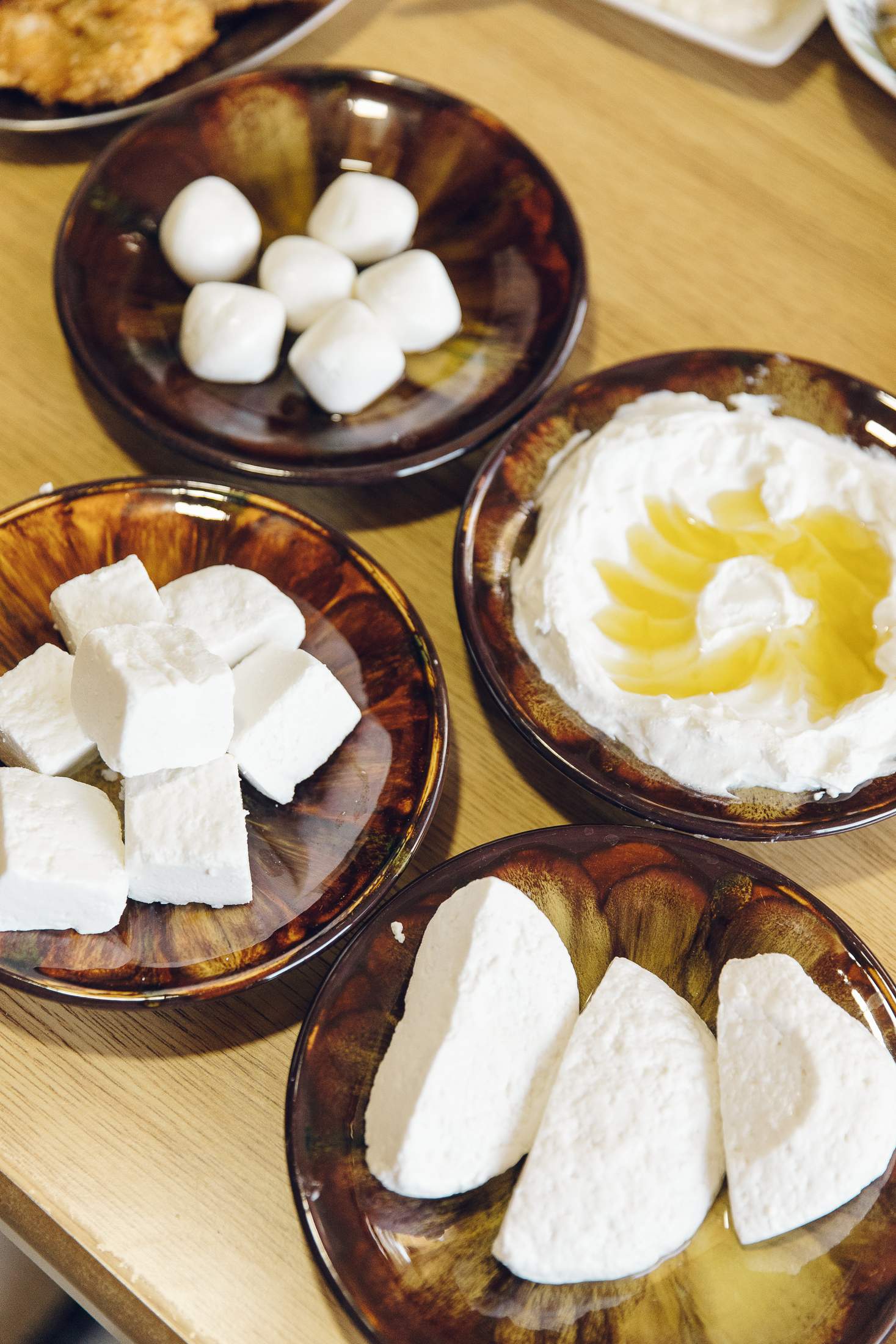
Cheese and yoghurt by Maria and Elie Abou Marouf
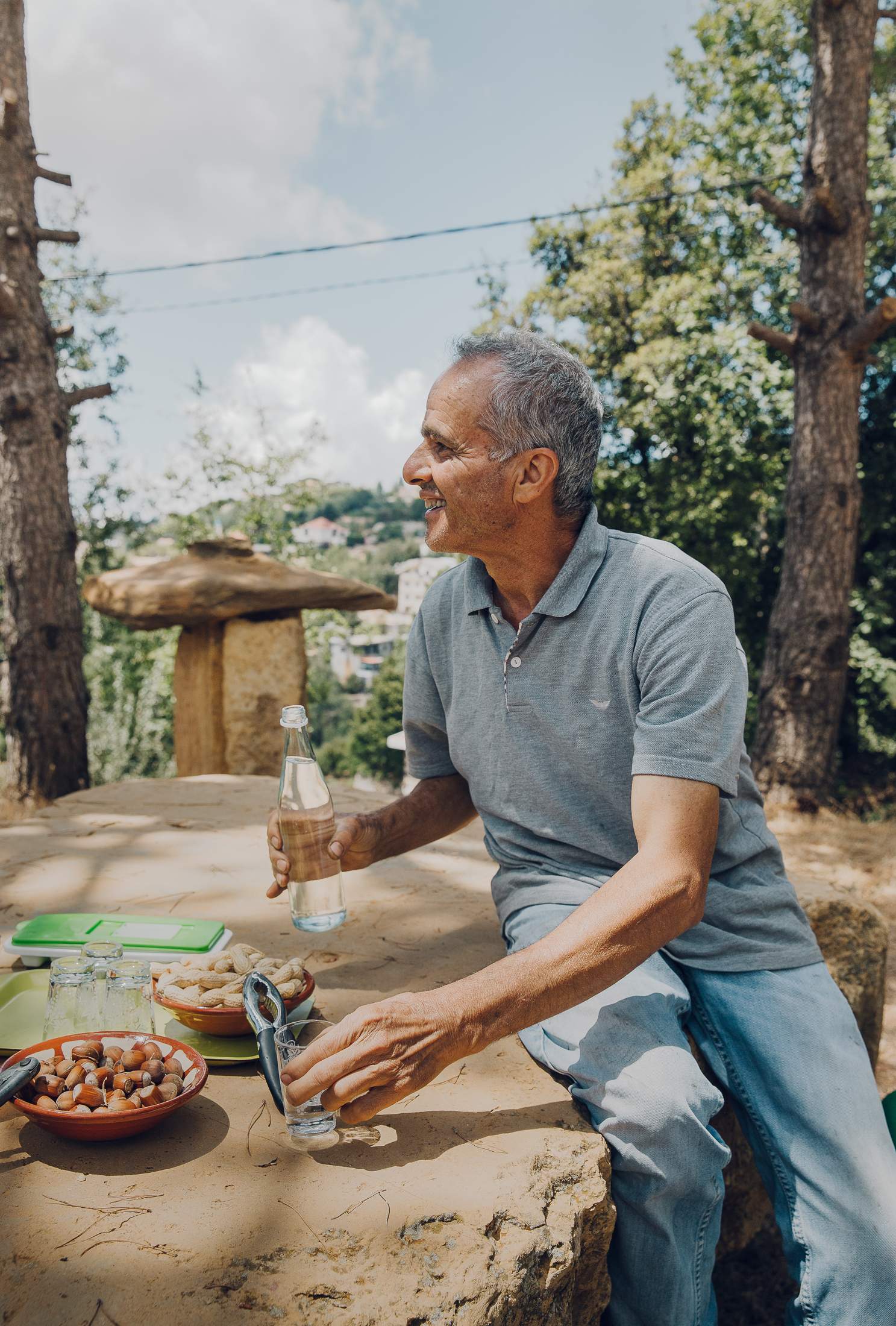
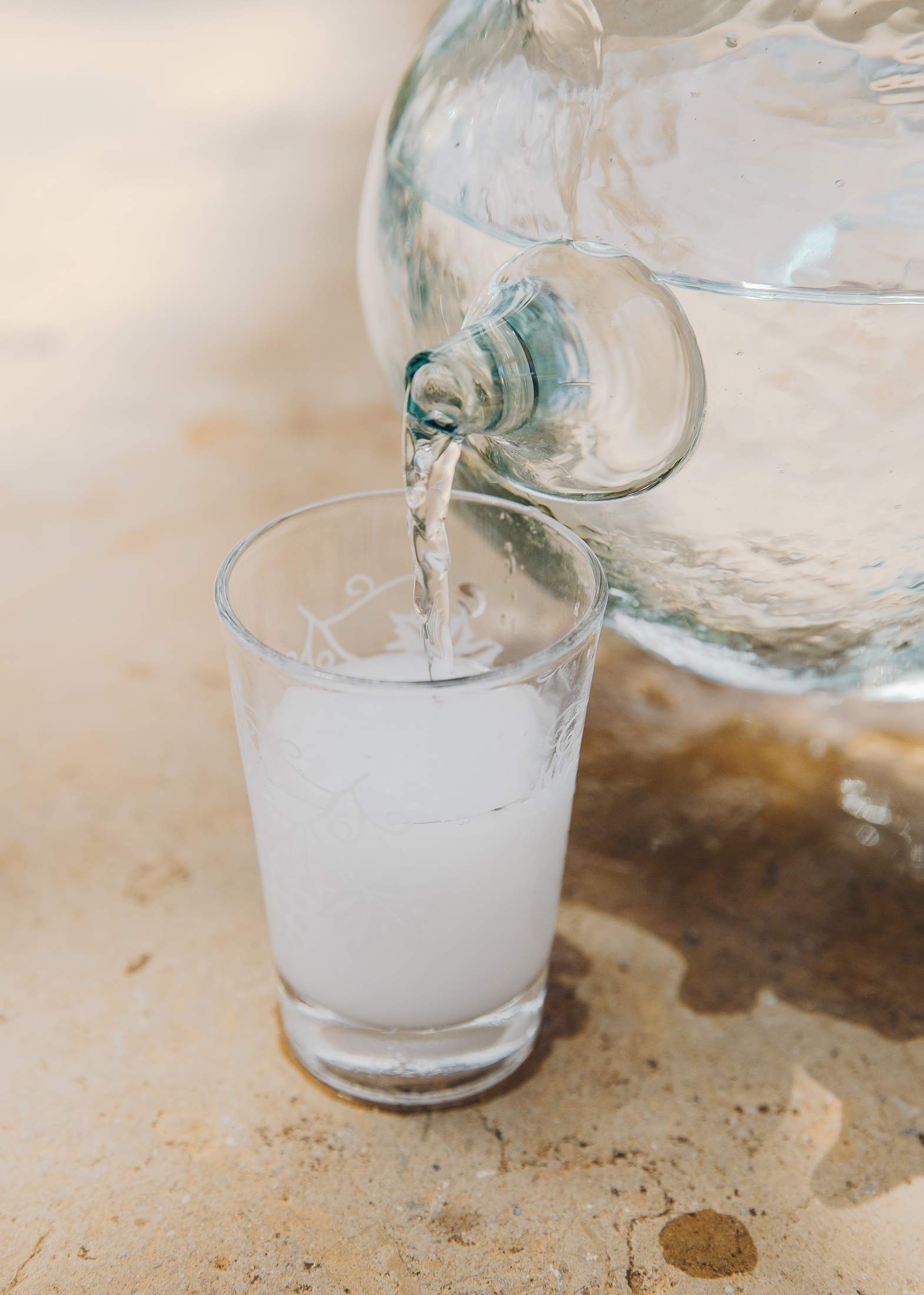
As we sit around a worn wooden table in the airy garden, with the tall trees providing shade from the midday sun, Bteish serves juice and cracks open nuts picked from his hazel trees. Then it’s time for arak – an aniseed spirit that is usually made from grapes but which Bteish, of course, makes from apples. “I’m so lucky to live this happy, calm life,” he says. “The land, the trees, my neighbours who I’ve known for years – that’s all I need.”
He sends us off with bags bursting with sweet, fresh fruit and a promise that we will soon return. We take rough mountain tracks from Mont Liban down towards the lush Bekaa valley. In the small village of Rashaya, perched on the Syrian border, we meet Elie and Maria Abou Marouf and their four-year-old daughter Maryam. As we drive up the hill and step out onto their wide balcony that overlooks the rolling hills of the valley, the sounds and smells of frying and chopping indicate that lunch is on the way.
On a table overflowing with plates large and small, Maria serves a platter of rice, vegetables and beef accompanied by a lemony cabbage salad and a sour yoghurt and cucumber drink. Then the rest of the dairy products, for which the Abou Maroufs are famous, arrive.
Elie moved to the town when he was a boy. In search of a way to support her family of nearly a dozen, his mother, a single parent, turned to making goat-based dairy products. The produce she made quickly became popular: labneh yoghurt for local breakfasts, hard cheeses rolled in bread and served with cucumbers to soften the sourness; creamy areesheh cheese curd coated in honey, walnuts and raisins for desserts. This mountainous region is at the heart of Lebanon’s traditional grazing lands and goats do well here thanks to the rocky terrain. The sour milk that the animals produce gives Lebanese dairy produce its distinctive flavour.
Elie travelled to Damascus in 2017 to convince Maria to marry him and return to Lebanon to start a family. He arrived with armfuls of fresh labneh as a gift for her family. It was a taste of what to expect. Now Maria is the driving force behind their business: she is up at the crack of dawn to stir, heat, cool and cut their homemade dairy products for their growing list of customers, while Elie works his day job in the army and spends his mornings and evenings transporting orders. Maryam is only four but she has the hostess gene, pointing to plate after plate to ensure that we’ve tried everything. “Having inherited this knowledge, this local understanding, has saved us,” says Elie. “This business has kept us going and now we hope to expand even more.”
This hospitality culture and the food that gave birth to it make Lebanon an endless source of culinary discovery. As we prepare to leave, Elie brings extra treats to our car; jars of areesheh are balanced against figs fresh from the garden. Our car is laden with delights as we embark on our long journey south.
On a dusty road just off the Nabatieh highway is a row of old, wide garages. As we approach them we see a cloud of dust emerging from one. The sound of a buzzsaw slows and Ibrahim Traboulsi appears, his eyes shining through a face filmed with sawdust. The area is known for its fine handmade furniture but Traboulsi does more than that: he fits home interiors from scratch and has produced a line of delicate sliding wooden boxes that Feryal uses to present its products.
Traboulsi has been working with wood for nearly 40 years, since he was 15. Like most of the boys in his town, the best hope he had of finding work was to become an apprentice. Luckily for Traboulsi, his job became his life’s passion. Now he’s passing his trade on to the next generation; his workshop is abuzz with the sawing and scraping of the three young men he’s taken on to assist him. The youngest of them is 16 and his eyes light up as he watches Traboulsi at work.
With Traboulsi’s team, there’s no time for lunch. Instead, thick, hot, black cardamom coffee is downed hurriedly under the overhanging garage door. As craftsmen like these have done for centuries, they’ll have a big meal with their families when they get home at the end of the day.“In my line of work, we say you’re either an artisan or a lumberjack,” says Traboulsi. He is the former, of course. Rather than destroying wood, he shows his respect for it by using it artfully for new purposes.
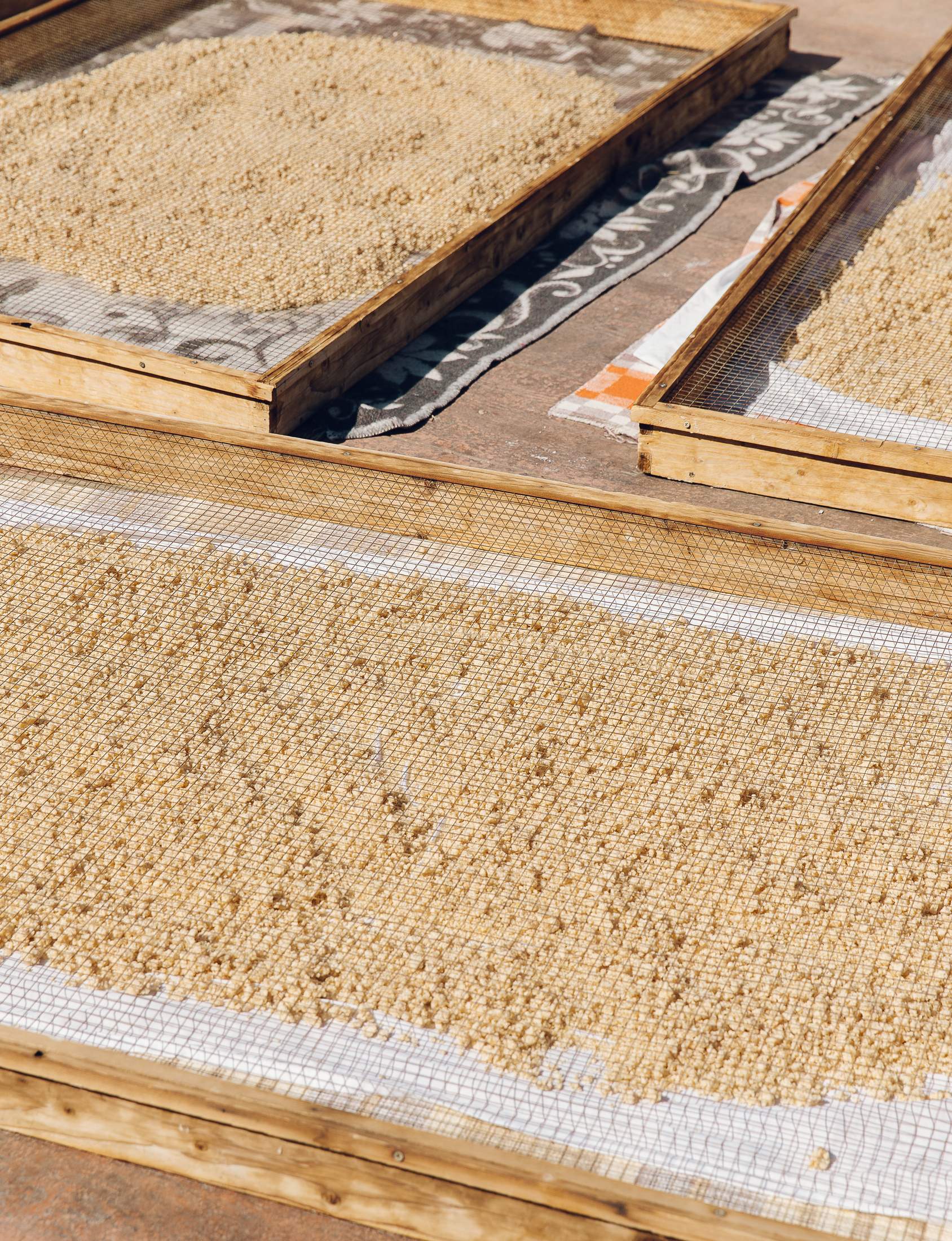
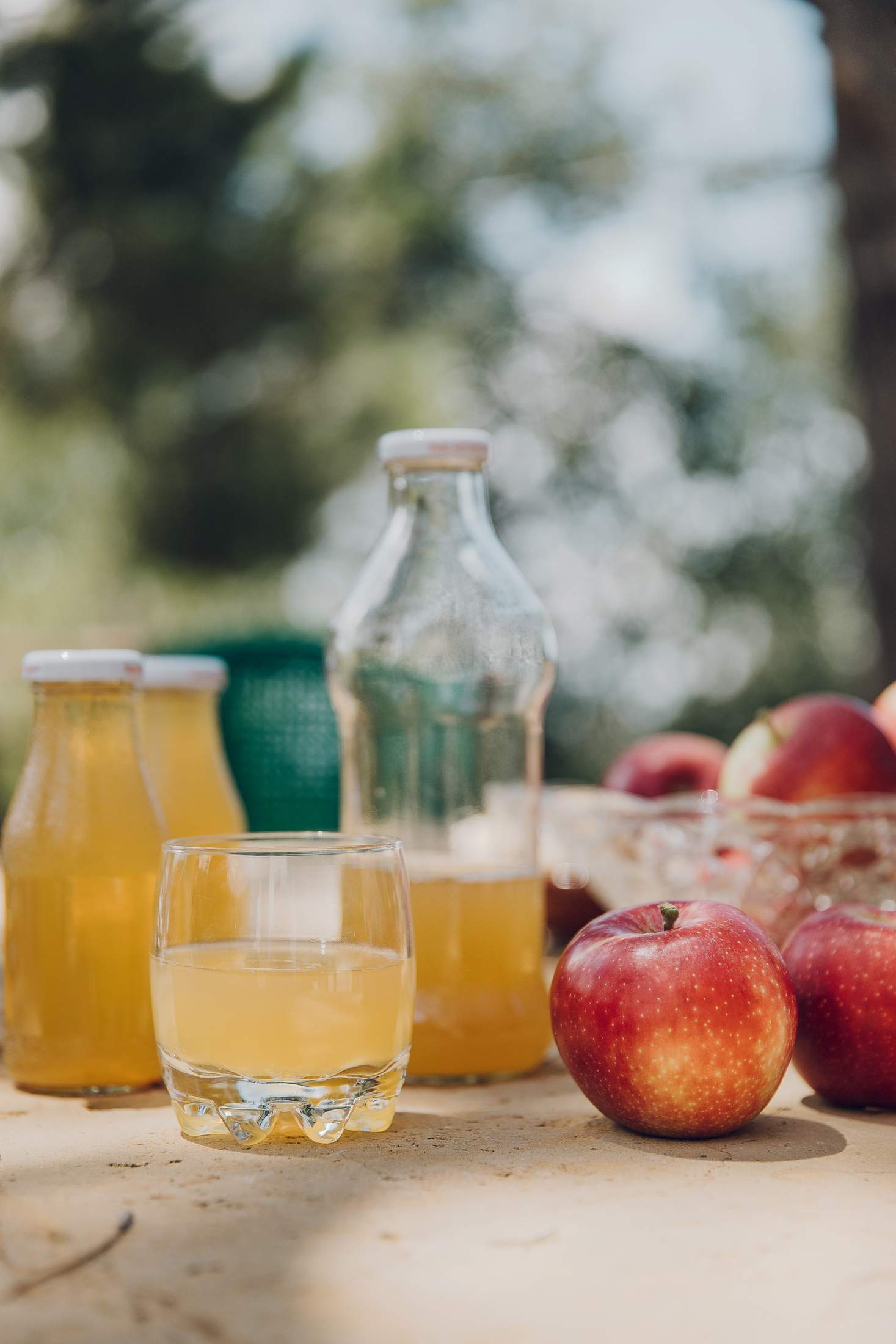
In some sense that’s also Feryal’s philosophy: to work between producer and customer, respecting both in finding and supplying the best product. “Our main vision is to protect those who are producing locally and protect the culinary heritage but also empower people to prosper in their own land to ensure their survival.”
At the end of our extraordinary journey we return to Feryal. Taha, the shop’s founder, explains that he hopes his family business can be a counterpoint to the faceless scrum of modern consumer culture. “Storytelling is at the heart of our business: explaining why this producer is the best person to provide this product,” he says. “When you can put a face and a story to the food that you hold in your hands, you will enjoy it more.” His mother sprinkles a healthy serving of her homemade za’atar spice mix over warm bread, coats it with silky, golden, hand-pressed olive oil and starts cajoling me into yet another mouthful. As she does so, she tells tales of her childhood lunches. It is hard to argue with Taha’s logic.
Recipe: Charbel Bteish’s Sfoof
(Apple molasses cake)
Ingredients
500g semolina
250g wholewheat flour
2 tsps baking powder
125ml olive oil
250ml apple molasses
250ml water
Butter or tahini, to grease
Optional
Mahleb (cherry seed spice)
Orange blossom water and rose water (to taste)
Method:
1. Mix the dry ingredients thoroughly, then incorporate the wet ingredients to make a smooth dough. Leave to rest at room temperature for an hour.
2. Heat oven to 180c.
3. Grease 30cm cake tin or a large baking tray with tahini or butter, then pour in the dough.
4. Bake for 25 minutes.
5. Leave to cool. Cut into squares to serve.


